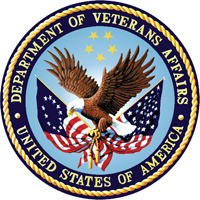President Obama’s budget ask for the Department of Veterans Affairs continue to climb, and for FY2016 the VA budget request will be $168.8 billion, an increase of 73 percent since 2009.
 In a statement released Monday, VA Secretary Robert McDonald said, “VA has before it one of the greatest opportunities in its history to enhance care for Veterans and build a more efficient and effective system. This budget will allow us to continue important progress to better serve Veterans, their families and their survivors. We are listening to what Veterans, Congress, employees, Veterans Service Organizations (VSOs), and other stakeholders are telling us. We aspire to make VA a model agency that is held up as an example for other government agencies to follow with respect to customer experience, efficient and effective operations, and taxpayer stewardship.”
In a statement released Monday, VA Secretary Robert McDonald said, “VA has before it one of the greatest opportunities in its history to enhance care for Veterans and build a more efficient and effective system. This budget will allow us to continue important progress to better serve Veterans, their families and their survivors. We are listening to what Veterans, Congress, employees, Veterans Service Organizations (VSOs), and other stakeholders are telling us. We aspire to make VA a model agency that is held up as an example for other government agencies to follow with respect to customer experience, efficient and effective operations, and taxpayer stewardship.”
The request includes $95.3 billion in mandatory spending, which goes to fund the benefits programs such as disability compensation, pensions, and education. That is more than double the VA’s mandatory spending in 2009 ($47.1 billion). The discretionary spending total request of $73.5 billion for 2016 will be used largely for veterans health care.
Of course, this is merely the administration’s request. Congress will weigh in with its own take on appropriations for the VA.
Here a highlighted breakdown of President Obama’s request by area:
Health care ($63.2 billion)
The highlights:
- $7.5 billion for mental health
- $2.8 billion for prosthetics
- $556 million for spinal cord injuries
- $232 million for traumatic brain injuries
- $243 million for readjustment counseling
- $7.5 billion for long-term care
- $1.2 billion in telehealth funding, which helps patients monitor chronic health care conditions and increases access to care, especially in rural and remote locations
- $446 million for health care services specifically designed for women, an increase of 8.3 percent over the present level
- $598 million for the activation of new and enhanced health care facilities
- $1.1 billion for major construction projects to expand access to health care
Improved IT for claims processing ($431 million)
- $290 million ($253 million in Information Technology and $37 million in VBA) to support the electronic claims processing system – the Veterans Benefits Management System (VBMS)
- $141 million for Veterans Claims Intake Program (VCIP) to continue conversion of paper records, such as medical records, into electronic images and data in VBMS
Veteran homelessness ($1.4 billion)
Highlights:
- $300 million for Supportive Services for Veteran Families (SSVF) to promote housing stability
- $374 million for the HUD-VASH program wherein VA provides case management services for at-risk Veterans and their families and HUD provides permanent housing through its Housing Choice Voucher program
- $201 million in grant and per diem payments that support temporary housing provided by community-based organizations
Veterans Choice Act
The Veterans Choice Act provided $5 billion in mandatory funding to increase Veterans’ access to health care by hiring more physicians and staff and improving the VA’s physical infrastructure. It also provided $10 billion in mandatory funding through 2017 to establish a temporary program (the Veterans Choice Program) improving Veterans’ access to health care by allowing eligible Veterans who meet certain wait-time or distance standards to use eligible health care providers outside of the VA system.
Other request highlights
- $86.6 million for improved customer service applications for online self-service portals and call center agent-assisted inquiries
- $5.9 million to bring into full operation two new national cemeteries opening in 2015, and to activate one new national cemetery and one rural National Veterans Burial Ground in 2016
- $266 million to administer the VA-run system of 133 national cemeteries
- $4.1 billion for information technology (IT), including investments to modernize Veterans’ electronic health records, improve Veterans’ access to benefits, and IT infrastructure
- $1.7 billion in construction, cemetery grants, and extended care grants to include nine VHA major construction projects and four gravesite expansion projects
So, how does the spending in those areas sound to you? What are the major funding deficits or unfunded but necessary programs? Let us hear from you.
